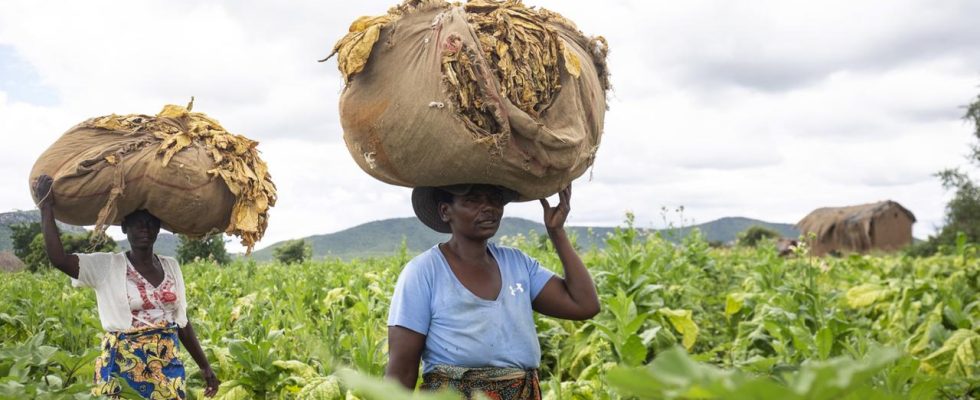According to the head of the WHO, tobacco companies are using perfidious methods to drive farmers into dependence. In the end, debts and damage to health often remain. The organization now wants to help with an initiative and microcredits.
With drastic “cooking videos”, the World Health Organization (WHO) makes it clear what it’s all about in an Instagram-friendly way: herbs, vegetables and meat are cut on a pretty wooden board and are transformed in seconds into tobacco, cigarettes and cigars, which are then served nicely garnished .
“The world needs food, not tobacco,” is how Rüdiger Krech, WHO Director for Health Promotion, sums up the World No Tobacco Day message. Because of the war in Ukraine, there is not enough food, especially for people in Africa. “And that’s why there is a clear alternative: we have to help the farmers to stop growing tobacco,” says Krech.
The perfidious methods of the tobacco industry
More than three million hectares of land are used to grow tobacco worldwide – even in countries where people are starving. In Africa, according to the World Health Organization, the area under tobacco cultivation has increased by almost 20 percent over the past 15 years. The blame lies with the tobacco industry, which uses perfidious methods to drive farmers into dependency. The tobacco industry keeps farmers in a vicious circle:
On the one hand they say: We give you seeds, fertilizers, pesticides – and you don’t have to pay for that now. At the end they say: We’ll give you this money, but you still have to pay us everything that we have advanced to you. And then they also say: you didn’t grow good tobacco, so we don’t give you the normal price.
massive damage to health
And so, in the end, instead of profits, the poor tobacco farmers often only have debts – and massive damage to their health. “If you work in the fields where tobacco is grown, it’s like smoking 50 cigarettes a day,” says Krech. “Of course, this is incredibly harmful for everyone, but it is even more harmful for the 1.3 million children who work in tobacco cultivation and do not go to school.”
Against this misery wants the WHO together with the UN World Food Program and the Food and Agriculture Organization (FAO). proceed. “Tobacco Free Farms” is the name of the initiative with which, according to the WHO, hundreds of farmers in Kenya have switched from tobacco to growing protein-rich beans.
A United Nations fund would make microcredit available to the farmers so that they could get out of the debt trap with the tobacco industry, explains Krech. “The Food and Agriculture Organization educates the farmers on what alternative food they can grow on their land. The WFP then buys the harvest from the farmers.”
Criticism from the tobacco lobby
Criticism of the WHO initiative comes – unsurprisingly – from the tobacco lobby. In Germany, for example, the Federal Association of the Tobacco Industry announced that the cultivation of tobacco was declining worldwide and did not compete with food production.
However, the new WHO report proves that even if tobacco production is declining worldwide, the corporations are expanding in Africa – unscrupulously. “The way the tobacco industry is gagging the farmers is really under all guns,” says the WHO Director for Health Promotion and appeals to the conscience of smokers on World No Tobacco Day: “I think we all have an interest in allowing such conditions Quit. So maybe smoke less or quit smoking.”

